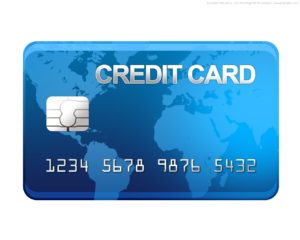Credit card fraud is an upsetting and shocking event to anyone who was unfortunate enough to have suffered as a result of being targeted by fraudsters. It sends shockwaves into your system, knowing that someone out there has tried to harmfully defraud you, and has actually managed it, all without you noticing a thing. Not using our credit cards isn’t an option, but being vigilant on how we use them and who we share the details with is. Credit card fraud happens all too often, with millions of people like you and I, holding at least one credit card, and using it on a weekly basis. Grocery shopping, online merchants, filling your vehicle with gas, all of these purchase and more, conveniently made through one easy swipe, or a press of a few buttons. We should never cease our daily activities that provide us with useful solutions; yet innocently enough we offer up our personal information for fraudsters and scammers to take advantage of.
Below you can find just a few of the do’s and don’ts to help you avoid credit card fraud, and keep your personal information safe:
- Don’t share your credit card information unnecessarily. While many of us rely on our banks to keep our information safe, we all too often serve up our personal credit card information via online programs such as email or whatsapp. While it’s true that any suspicious activity will often be reported by your bank, it’s best not to allow people to hold onto the actual details of your card, but find a way to make payments directly through a service that doesn’t retain your details.
- Do use a credit card monitoring service. Such services are available online and can offer you valuable time saving statement checks as well as adding an extra protection for credit card fraud. They will alert you immediately if fraud occurs, as well as help you deal with the problem at hand.
- Don’t make purchases from an unreliable merchant. The internet is the world’s largest open market. You can buy almost anything, from anywhere, at any time – all you need is your credit card, and common sense. If for example you are searching for an item online, and you are comparing prices over various websites; you will find that the prices won’t differ all that much. Now if you see an unknown website offer the very same item for half the price, then alarm bells should go off. Either they won’t be offering you the item they claim to have, or they are planning on taking your credit card details for fraudulent use. Always check the details of wherever you plan to make your purchases of online. A website that is not well known, that doesn’t have full contact details such as email, telephone, address should not be trusted!
- Do keep your credit card safe at all times. This means, that you shouldn’t store your pin codes and credit card details online anywhere, for ease of access. Not even in a SMS message to yourself. If your android is hacked, all of your information is open for the hacker to use as they like.
- Don’t wait until the end of the month to check your statements. Credit card fraud can happen at any time, and if you chose to not use a monitoring service, then you should log into your e-banking account and check the status of your accounts and transactions every couple of days.
- Do keep your statements in a safe place, and when time comes, destroy them by using a shredding machine. Remember that these statements hold your personal information and fraud can happen just as easily through your negligence as it could from malicious hacks.







